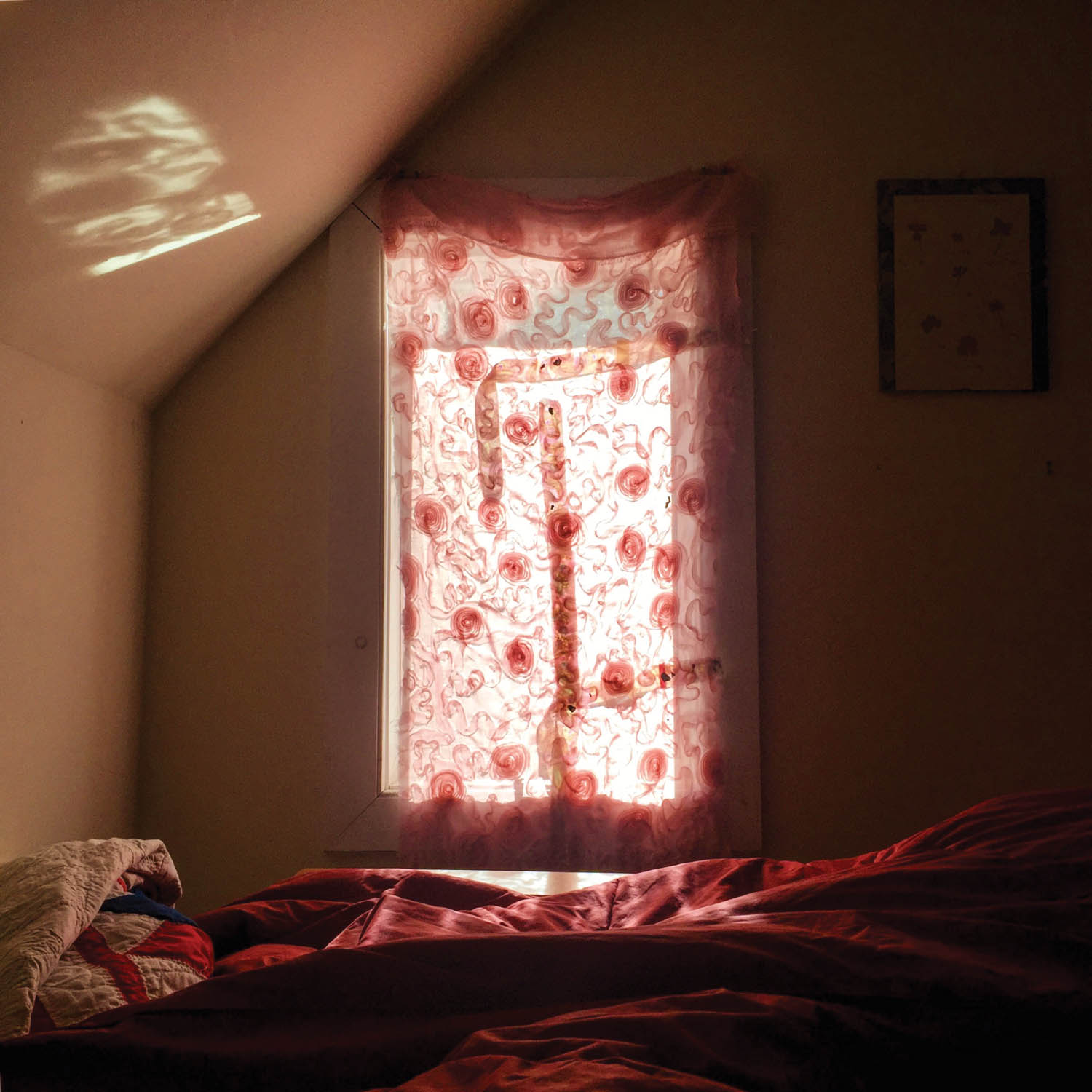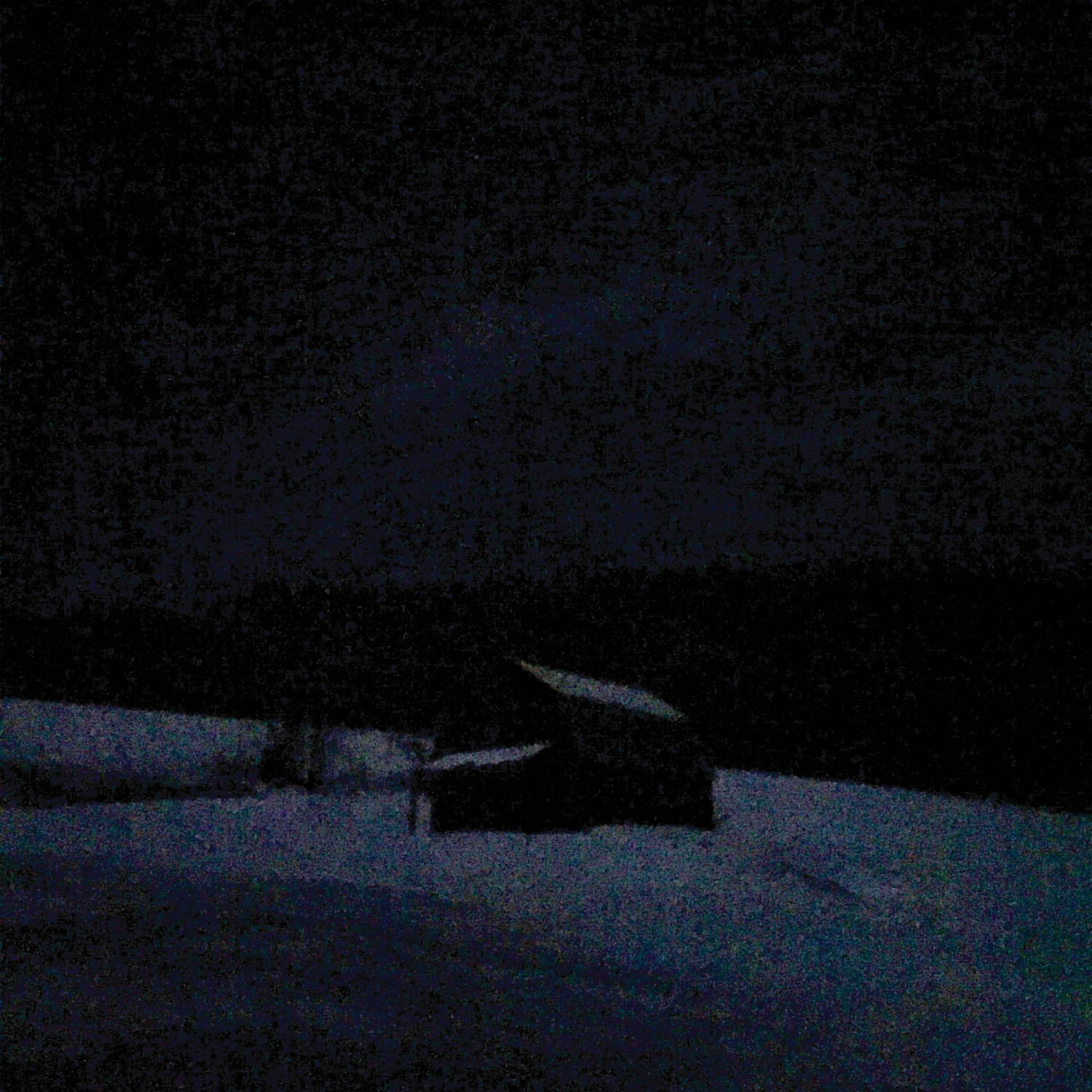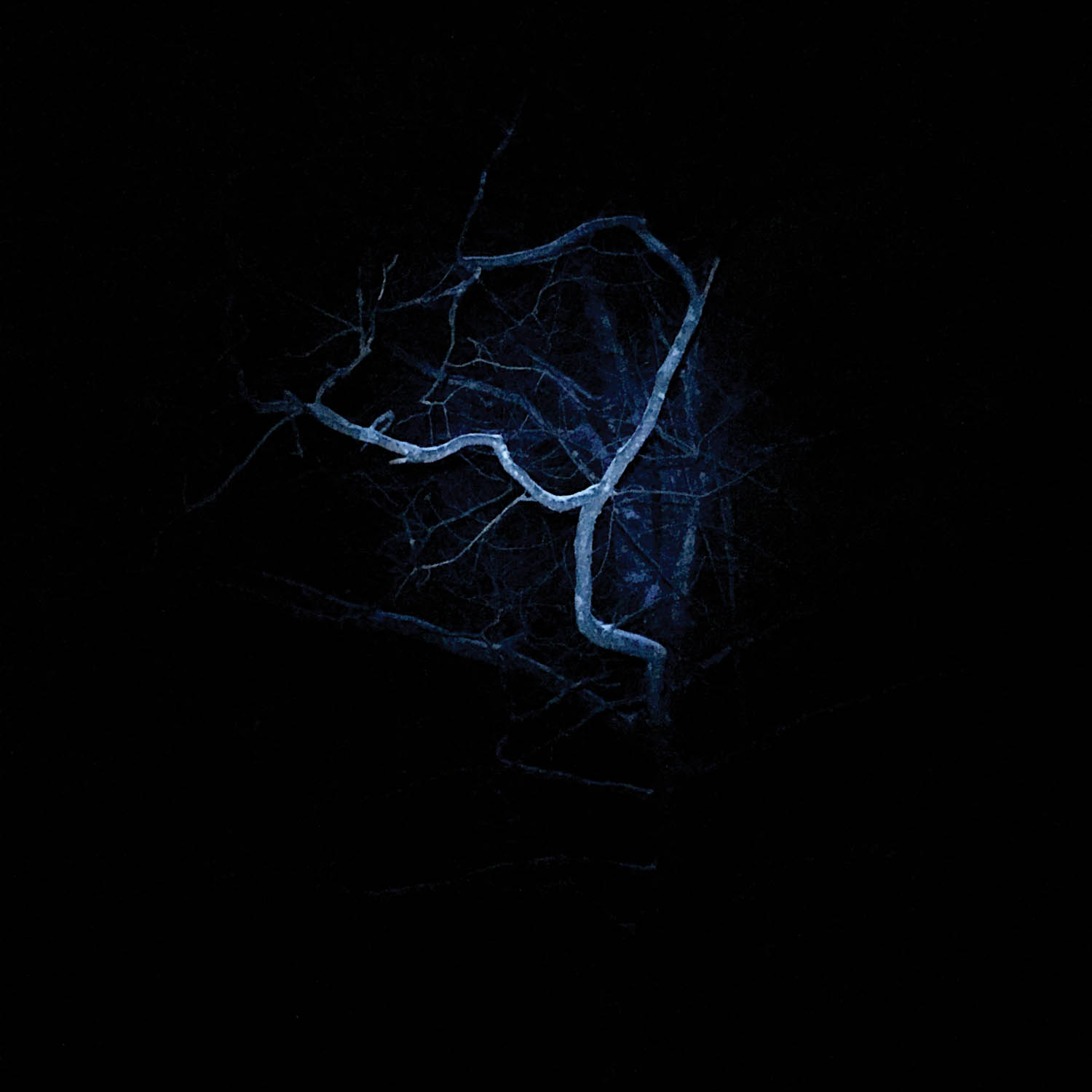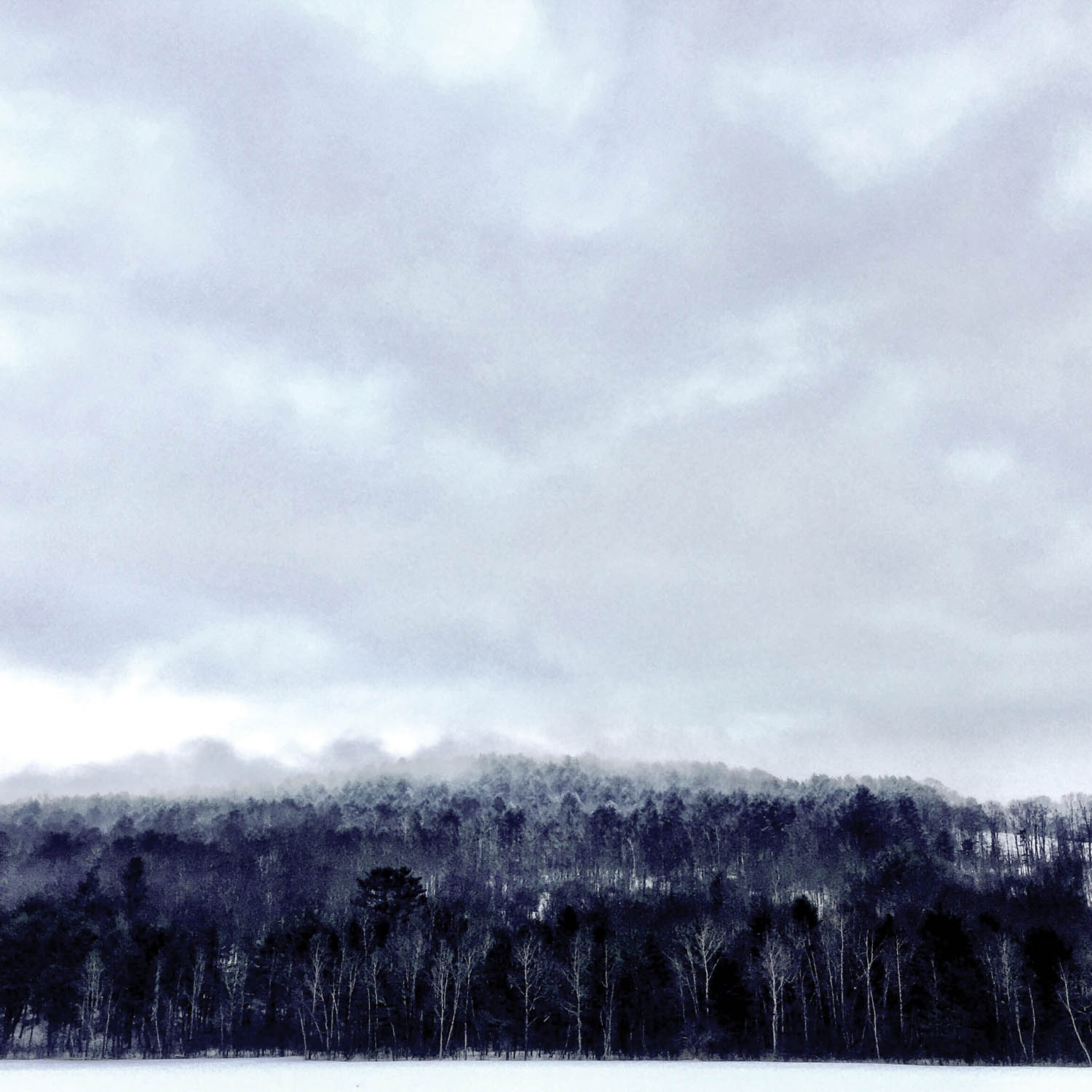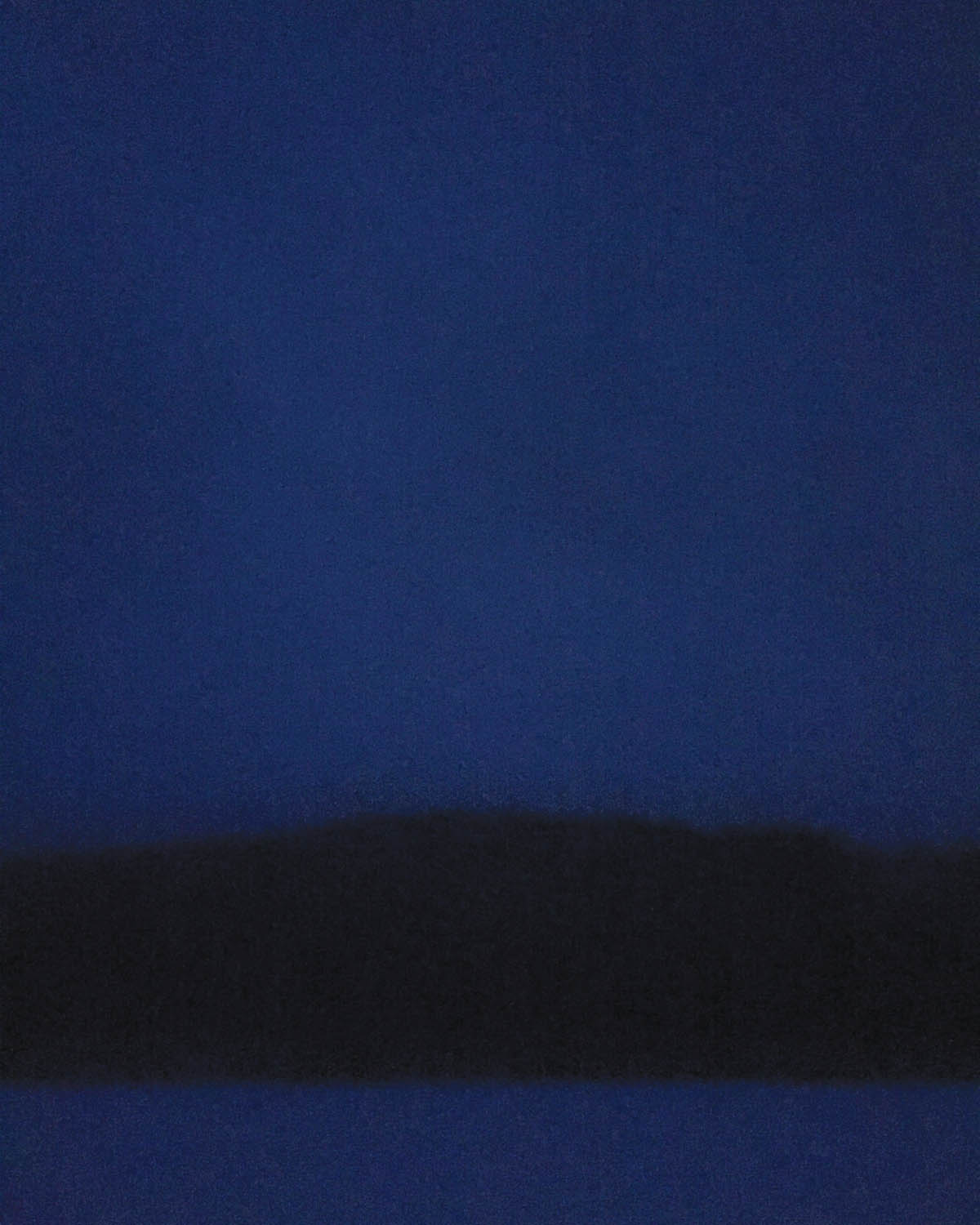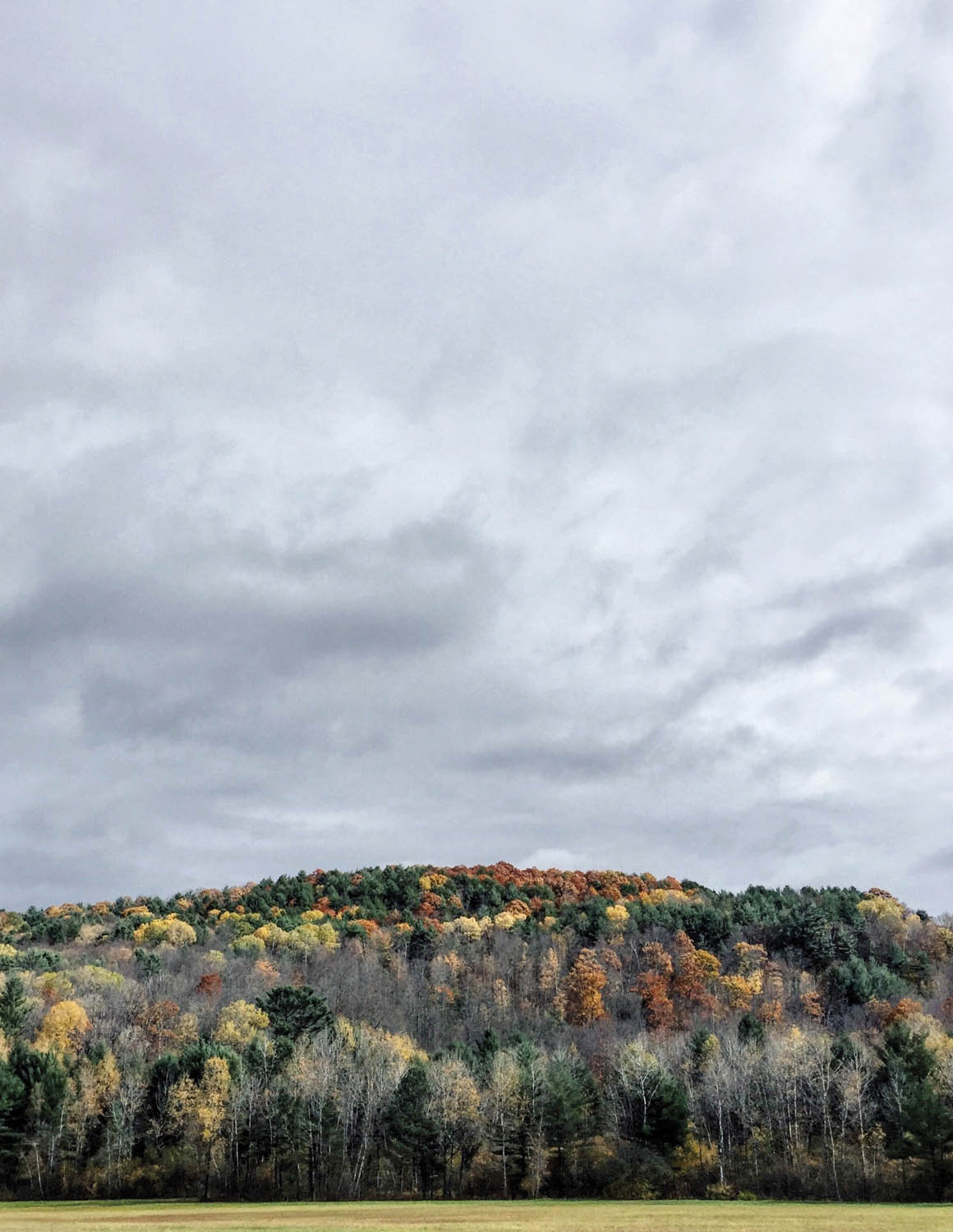
For two years I’ve been walking into the tall grass to take snapshots of this field at the top of the “crooked mile,” a winding hill that leads into the shallow valley of swamp and stream in which my house stands, just past the sign that reads pavement ends. I use my phone. I want the rough eye. The note. The diary. The record. The document. This time, this moment, unplanned.
This moment: stopped on the drive home from another trip to the hospital. One of many during the past two weeks, after two heart attacks, or maybe it was only one, rising and falling like a tide, across thirty hours. It began as night fell, as I wrote what I thought were the last words of a book I had begun two years before, following my father’s heart attack. Mine, like his, was “mild.” I’m told the pain can be instantly alarming. Not for me. I had been hitting snooze on this pain for months. Maybe years. Doing so was easy. It was only an ache, or sometimes a ripple, weak as chamomile, never sharper than nettles. That is, I did not know it was a heart attack. Then, after midnight, my chest began to fill as if with heavy water. My breath was cut into small and ragged pieces. I was being pressed, as if by a hard hand, back into the rocking chair in which I sat until dawn.
The second heart attack didn’t begin until evening. By then I was in the hospital. I would have known what was happening even if I hadn’t been. It was obvious. I was dying. Doctors hovered above. “I’ll be all right, won’t I?” I asked. One said, “We’ll do the best we can.” I thought he hadn’t understood, so I asked again. Again he said, “We’ll do the best we can.” I thought, That’s the wrong answer. But it was the only one they had.
This place: this field, not mine, once a swamp, now just tall grass and a low hill and the weather, a sky filled with water. Wetlands, wet air, the sea we breathe. I trespass quietly. I take my picture. This place, this moment, unplanned.
Before this room belonged to my three-year-old, M, it belonged to my daughter, R. She made this curtain with tacks and duct tape when she was four. We hadn’t bothered to cover her window, thinking she might like to sleep by the light of the moon and wake with the sun. We hadn’t considered the pines, which whisper.
Now, for a while, the room and the curtain’s soft light belong to me. This low bed is good for recovering. I like the framed collection of four-leaf clovers my wife hung beside the window, beneath each one the date on which she found it as a girl: May 1, 1980; June 1, 1980; July 9, on into summer. I was eight in 1980, and I remember arguments about Reagan and Carter and the Russians, and nuclear war, the threat of which seemed to hum beneath the noise of our lives.
The second night I went to the hospital, R and M were nervous, so my wife let them stay up late. They watched the second presidential debate, worrying about the orange smog hovering behind Hillary, maybe the way I thought, at eight, that Reagan was a harbinger of mushroom clouds. It’s pretty scary, this world.
The third night I went to the hospital, I woke in the dark in the cardiac wing and looked past my toes to the light of the door, open like a book. In the hall a nurse’s face glowed blue with the light of the telemetry monitor on which she watched our hearts. I took a picture. I posted it with a note about the smells and shapes and sounds of the hospital, my neighbor gently snoring. He was a dishwasher who loved his job; he liked to tell the nurses about his coworkers, “old hens” who would, he said, cluck over him when he returned. He had been washing dishes for sixteen years, ever since he’d stopped driving, because of depression, because, he said, “you don’t ever know what you might do.” He said he was happier just walking.
The next morning, two police officers came to my room. A report of picture-taking; not allowed. I apologized and deleted it. It’s pretty scary, this world. The trees, the whispers, the pictures.
Waiting for the words to return. I’ve always had words, sentences that knitted themselves, paragraphs that fell into place. Always there was language, easy as air. I used to love a line by Catullus: “Calling all syllables!” They’d come. Now they don’t. I’m not sure I need them to. Even a snapshot of the dark-that-isn’t-dark-at-all might be more than I want to set down. Never before in my life has just being here—with the fox and the doe and the owl, with my pulse and my fears and the frozen air hot in my throat—felt so close to enough.
Another night, another walk. The moon hidden, my headlamp’s beam caught in the branches. I’m listening to headphones, an audiobook. These days, these nights, I listen more than I read. I give up the voice in my head for a stranger’s.
I also give up meat and sugar. Salt and beer. I give up hours each day to walks. I run for miles. I count my pills. My prognosis—my doctor’s prognosis, that is, the story he tells about my heart—is excellent. I should live to an old age, he says. I agree. I should. That’s his story. I like it, too. Same as I liked the one the emergency-room doctor told when he sent me home from the hospital the day before the heart attack. “Acid reflux,” was his diagnosis. Indigestion. “We’ve ruled out your heart,” he said. The next day my heart told a different story.
The moon hidden, headphones on. I’m listening to Writing to Save a Life: The Louis Till File, by John Edgar Wideman. The voice belongs to an actor who almost whispers, perfect for Wideman’s oddly made book, part fact, part fiction, a distillation of all the years during which the murder of Emmett Till haunted Wideman; an exorcism, by way of an investigation of the hanging, years earlier, of Till’s father, Louis. Exorcism of what? Memory? An old man, Wideman watches his fade. The hate that killed the son and, in a sense, the father? He’s not sure. Inquest by way of free association: Louis Till reminds Wideman of his own father; the sea reminds him of his mother; Ezra Pound, imprisoned with Louis, reminds him of St. Louis, which reminds him of saints, which reminds him he is not one. Wideman digresses. My eyes, bright with cold, follow the headlamp’s beam.
“Same tale,” writes Wideman, musing on the term serial, “that’s a different tale each time.”
Wideman writes, the actor reads, I listen. I look for the moon, get caught in the branches. A dragon? A swastika? A letter? A heart? You can’t rule anything out. Not the heart, not the story, which isn’t even yours. Never was.
Cold, my friend Q reminds me, does not exist. Cold is not a presence; it is an absence. It is the name we give to a void from which some measure of heat—the measure we desire—has disappeared. There it is, the heat, rising up from the hill. What does it lift from the trees? Up and away, south along the river, drifting or blowing according to mood. Our moods—that is, our inclination to name the movements of air with the eddy of a lazy f, drift, or the plosive declaration of a pompous b, blow. Either choice or any other, they’re ephemeral as the vanishing heat. The movement of air has no name.
“Why did you write?” Q asks, using the past tense to indicate the state of the present, in which I don’t, at least not as much as I did before, when writing was my job, even though it still is.
“All the usual reasons,” I answer—ego and art and anger and money and joy. Joy most of all. A pleasure no greater nor less than that of some of the other men I met in cardiac rehab. Before our heart attacks, we were a contractor, a mailman, a restauranteur, a writer. After? What are we now?
“Because it made me feel alive,” I tell Q. “It was like electricity sparking out of my fingers.”
“That can’t be good for your heart,” Q says. He’s joking, but I wonder: about adrenaline and cortisol, sugar in the blood, fight or flight, the inflammation of vessels, the inflammation of words into sentences; the violence of naming, the fury of order.
The other name we give to the absence of heat is death. These are, of course, relative terms. Somewhere there may exist a state of absolute zero, -459.67 degrees Fahrenheit, but this is referred to as a “theoretical temperature.” And death, we know, is simultaneously a presence and an absence, an event and a cessation. I won’t say beginning and end; what little thought I ever had of an afterlife rose off me during the heart attack, like vapor, and drifted away.
What to call the absence of something that was hardly ever there? Not any kind of certainty. It’s an emptiness that feels alive. It needs no name.
That morning, as I ran, a streak of pain floated down from my shoulder and into my left arm. It lingered. I felt for my tiny jar of tiny pills. I kept running—three miles, four. At five the pain was gone. I wiped the sweat off my face, and my hand came away red. Blood. Winter air, dry air, nothing suspicious about a nose bleed. Unless your body itself is suspicious. A suspect, an unreliable narrator. A telltale, a ticker, tick-tock, thump-thump, minutes, seconds, the beat, there it is, the number of days.
I rubbed the red against the grain of my fingers. They’re a tell, too. Who I was. The skin of him, anyway, too much of it now, wrinkled and loose. Who I was: a fat man. I liked being a fat man. I liked filling space. Now the fat of me doesn’t fill the skin of my hands.
I pressed my red fingertips together; they flattened, stayed flat when I spread them apart. These days, these nights, they take the shape of whatever it is they last held, a glass, the steering wheel, each other.
I drive past the field, kids in the car. “Is it night?” asks M, who is three and likes to verify. “Almost,” I say. What to call the blue that pours into the open space of the day’s collapse? Snow blue, dusk blue, storm? Each an ink washed over the other, bright as blood beneath the white sky that morning before the snow began to fall. Color that contains its own light. Like your blood on your hands, when you’re thinking maybe it’s a symptom. When you are listening for the words, the right ones. When you are coming to terms.
Or maybe the terms will come to me. I look for a fat man’s face in the mirror but I no longer see Irving, my father’s father—his jowls, his lips, his junkman’s gaze measuring the odds. Instead, Ruth, my mother’s mother, the shadow of a gourd, the distance between her mouth and her eyes, the space between what she said and what she saw.
I turn around, drive back to the field, tell the kids to wait in the car. “A minute,” I say. This moment. The color. The yellow slash of the headlights across the snow. The red in my veins. This blue sky, same as the snow-covered land. This brilliant darkness, with which I am coming to terms.


